Zika outbreak: Brazil's race to find a vaccine
- Published
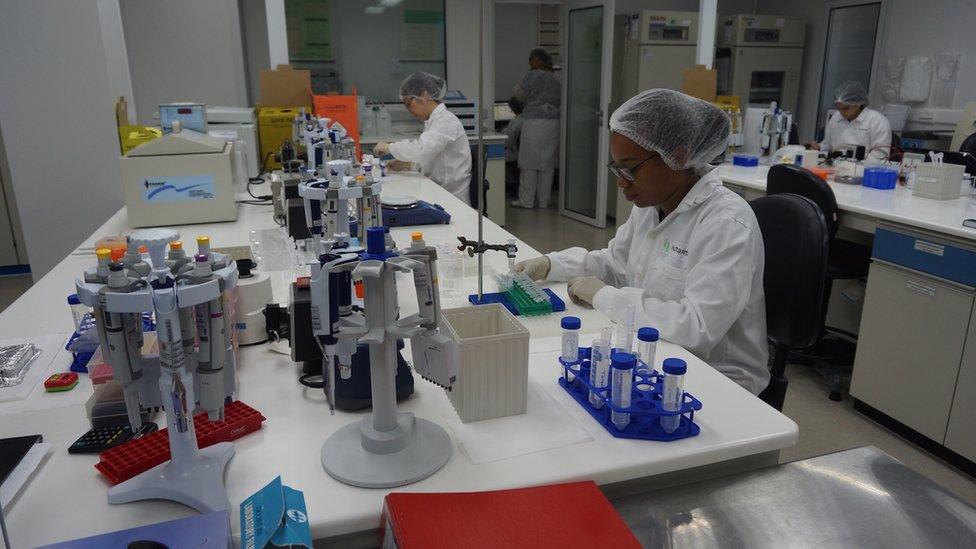
Scientists at Sao Paulo's Butantan Institute quickly pivoted from diphtheria to Zika
The Butantan institute in the Brazilian city of Sao Paulo is world-renowned for its impressive collection of snakes, spiders and other fascinating creepy crawlies.
Founded right at the start of the 20th Century, the centre is these days equally famous as one of the world's leading producers of biopharmaceuticals and immunobiological products.
This week the BBC visited the research and development laboratories at Butantan.
Here, biochemists were working on a batch of vaccines for diphtheria, one of the many established illnesses and diseases that the centre helps to combat. But now there's a new enemy in town and it has forced a change of priorities.
Unknown quantity
The warnings and concern over the Zika virus are not overblown or unjustified, maintains Alexander Precioso, the institute's director of clinical trials and pharmacological vigilance.
"Basically the majority of the population [in Brazil] is susceptible to the Zika virus, so we are expecting to have many cases," Dr Precioso told me. "That's why vaccine is such an important intervention in terms of preventing the disease."
But, warns the senior clinician, no-one should expect a quick resolution to a public health crisis that is spreading across the Americas.
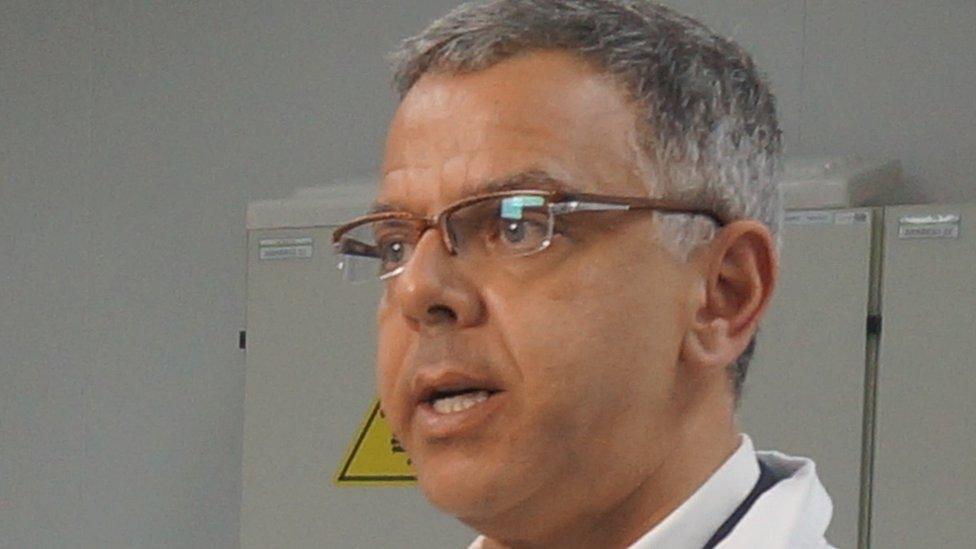
Dr Alexander Precioso of the Butantan Institute says more work is needed on the relationship between Zika and microcephaly
With the suspected link between Zika and the devastating natal condition, microcephaly, not yet proven, doctors and researchers point out that the entire global medical community doesn't yet know exactly how the virus works on the human body.
"Once we know exactly what the relationship is between the Zika virus and microcephaly, we will be in a better situation to know if a vaccine or a treatment will be available within a certain period of time," says Dr Precioso, acknowledging that the medical and research community is still very much in the dark.
"We do have the hypothesis that the relationship (between Zika and microcephaly) is true …. but we need to keep studying to try to establish the relationship between the virus and the body in order to have the best vaccine or treatment," Dr Precioso says.
Millions of mosquitoes
Emphasising the importance of international co-operation in the race to find a vaccine, researchers admit it could take at least 10 years to develop and produce.
Easing long-established international protocols, as was the case when dealing with the Ebola outbreak in Central Africa, could reduce that timescale but the outlook isn't good for immediately easing the fears of people in affected areas.
So the practical focus now, while work continues on developing a vaccine, is on disease prevention.
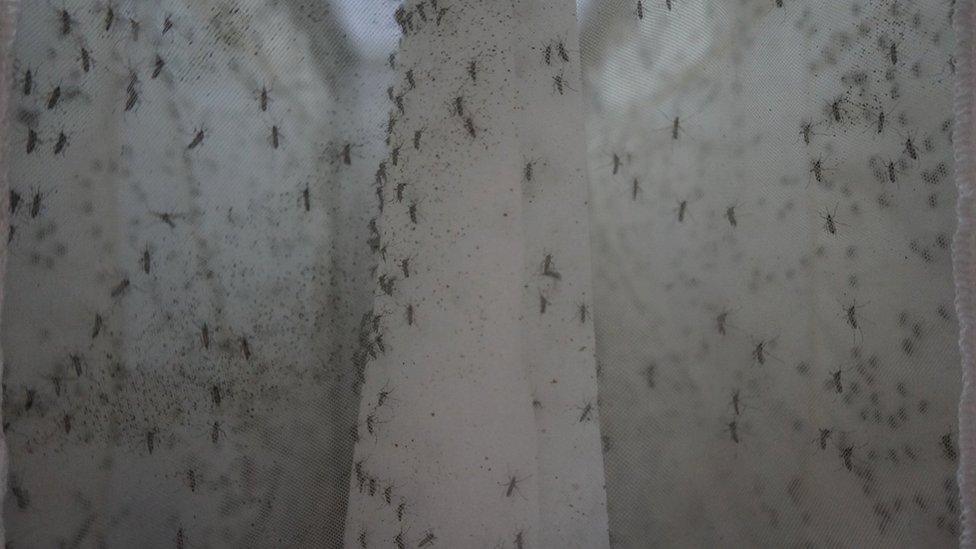
Millions of mosquitoes are bred in Oxitec's lab before being released into the wild
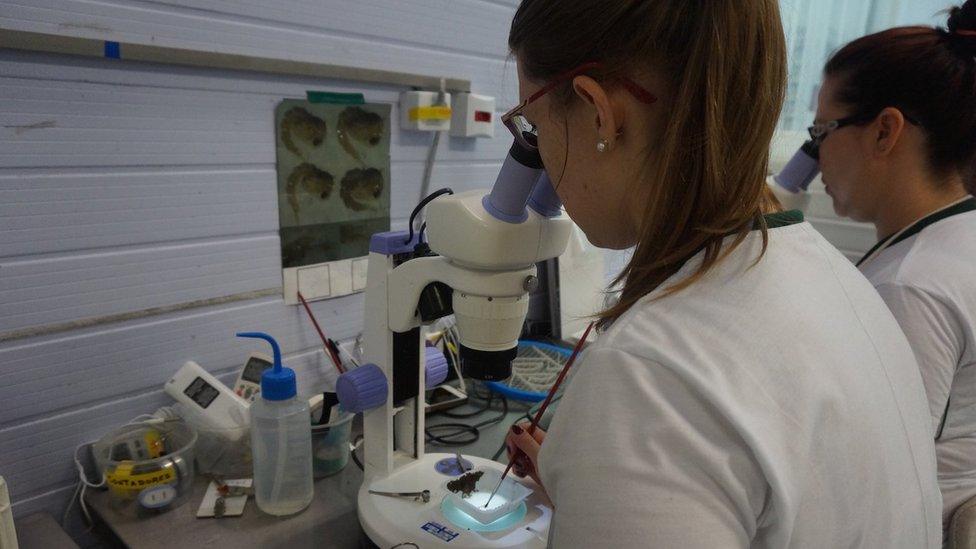
The lab-bred mosquitoes are checked for quality
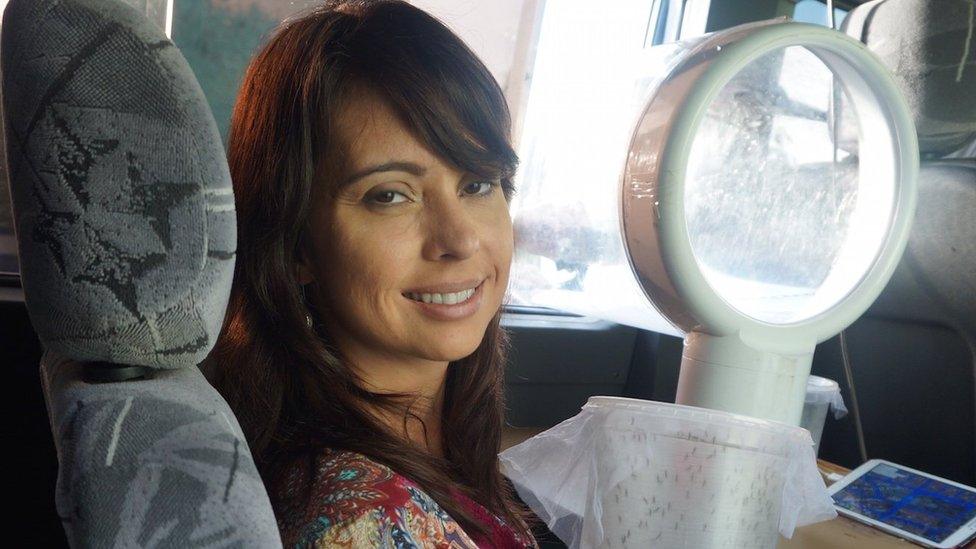
Oxitec's Cecilia Kosmann says releasing self-limiting male mosquitoes into the wild will keep numbers down
Releasing millions of fertile mosquitoes into the middle of a Sao Paulo suburb in the midst of a mosquito-driven health crisis may seem, at first sight, counter productive but the woman emptying pots-full of little insects from the side of a moving van insists it's a proven technology that works.
"These are self-limiting male mosquitoes," says Cecilia Kosmann, a production supervisor at the British-owned research company, Oxitec.
"Basically they'll mate with females and pass on their genes as normal but the offspring will die while still larvae, before they become flying insects, which is the critical period," adds Ms Kosmann.
The company, which has a small research and production facility in the city of Campinas, is well placed to respond to the Zika outbreak. For years, producing two million mosquitoes each week, it has been tackling dengue fever in Brazil and, says Ms Kosmann, in some areas mosquito numbers have been reduced by as much as 90%.
Urgent race
These efforts apart, Brazilian officials admit, they've been taken completely by surprise by the arrival and subsequent spread of Zika.
Under-fire Health Minister Marcelo Castro said this week that Brazil was losing the battle against Zika, "hands down".
It was a remarkably frank and perhaps too-honest assessment of the crisis, which brought a swift rebuke from President Dilma Rousseff that everything was being done and that no resources would be spared in the battle against the virus.
But those with most to fear, pregnant women or those thinking of having babies, are none the wiser and many are scared of what might happen.
With thousands of women reported to be delaying plans to have children and those who can afford it taking the drastic decision to leave Brazil during their pregnancy, the race to find a vaccine for Zika is an urgent one.